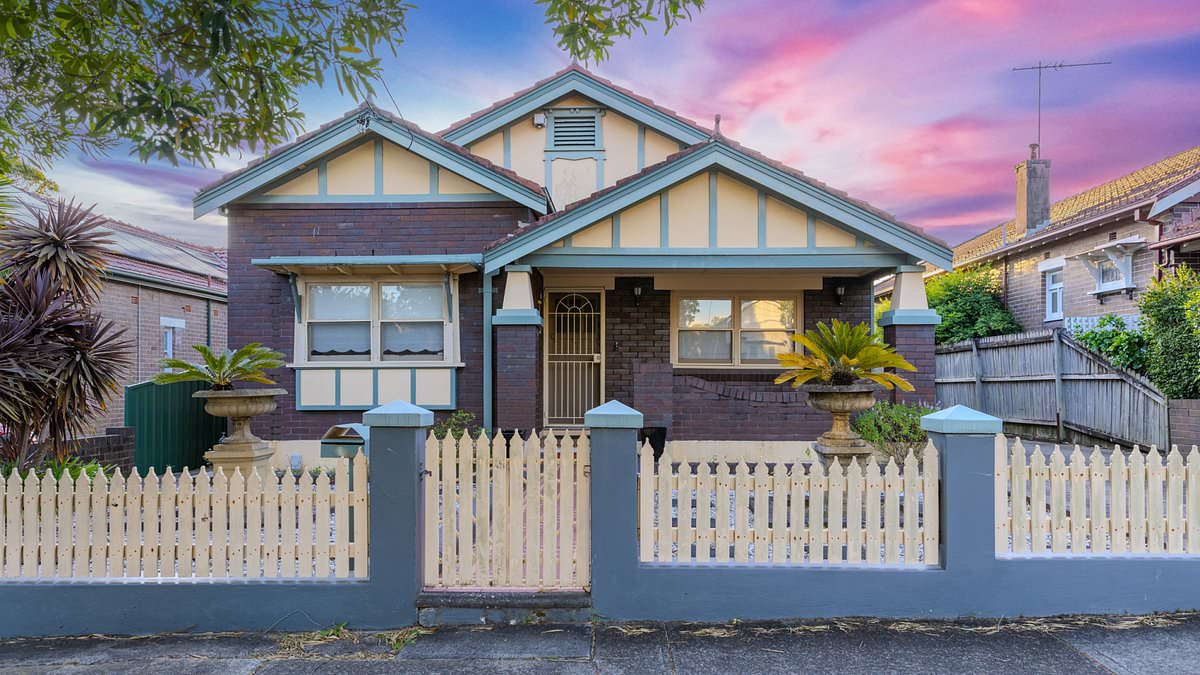ns should pay capital gains tax on their family home in order to tackle the housing crisis, a pair of influential economics professors argue.
Peter Siminski from the University of Technology, Sydney, and Roger Wilkins from the University of Melbourne, argue the longstanding capital gains tax exemption on the family home favours the rich and costs the government much-needed revenue.
They are advocating the tax exemption be abolished ahead of next week’s Economic Reform Roundtable in Canberra where Treasurer Jim Chalmers is hoping for ideas to increase productivity.
‘Here, we serve some food for thought – the taxation of owner-occupied housing,’ the professors wrote in an opinion piece for The Conversation.
‘This may seem distasteful, but there are some strong arguments for doing so.’
A property owner’s principal place of residence has been exempt from the capital gains tax since it was introduced into law in September 1985.
Neither major party – not even the Greens – has called for the capital gains tax to be imposed when someone sells the home they live in.
But the Prof Siminski and Prof Wilkins argue not taxing the family home costs Treasury $50billion a year in foregone revenue.
‘The size of tax concessions for owner-occupied housing is similar to that of superannuation, and much larger than for investment property,’ they said.
‘Treasury estimates it forgoes more than A$50 billion per year by exempting owner-occupied housing from capital gains tax.’
They calculated that average income for outright home owners was 34 per cent higher than for renters, but it was 86 per cent higher when housing income was included.
Someone can move out of their principal place of residence and rent it out for six years, and still be exempt from the capital gains tax when their house or unit is sold.
Older ns who bought their house to live in during the 1980s and 1990s, when property was much cheaper compared with incomes, are spared from having to pay the capital gains tax when they sell.
‘Favourable tax treatment of owner-occupied housing is a major driver of inequality, undermining the redistributive role of government,’ their paper said.
‘Owner-occupied housing is regarded as sacred, with home ownership regarded as the “Great n Dream”.
‘Taxing the home is seen as inappropriate. The irony, of course, is that subsidising home-owners lifts the price of housing, making it harder for others to obtain.’
The family home is also exempt from the assets test when deciding eligibility for the age pension, which the academics said should be reviewed.
‘Including the home in pension means tests is another option,’ they said.
‘Most of these options are politically challenging in , but have been implemented by many other countries.’
Younger ns on average salaries, who are priced out of buying a house in Sydney, often resort to buying investment properties in more affordable cities to build some wealth in real estate as a ‘rent-vestor’.
When these people sell, they have to pay the capital gains tax, but with a 50 per cent discount that has applied since September 1999.
Labor lost the 2016 and 2019 elections with a plan to halve the 50 per cent capital gains tax discount to 25 per cent.
Prime Minister Anthony Albanese ruled out changes to the capital gains tax discount in Opposition, but the ACTU – a key supporter of his ruling Labor Party – has this week called for the CGT discount to be restricted to one investment property.
This is the same position the Greens took to the last election.
